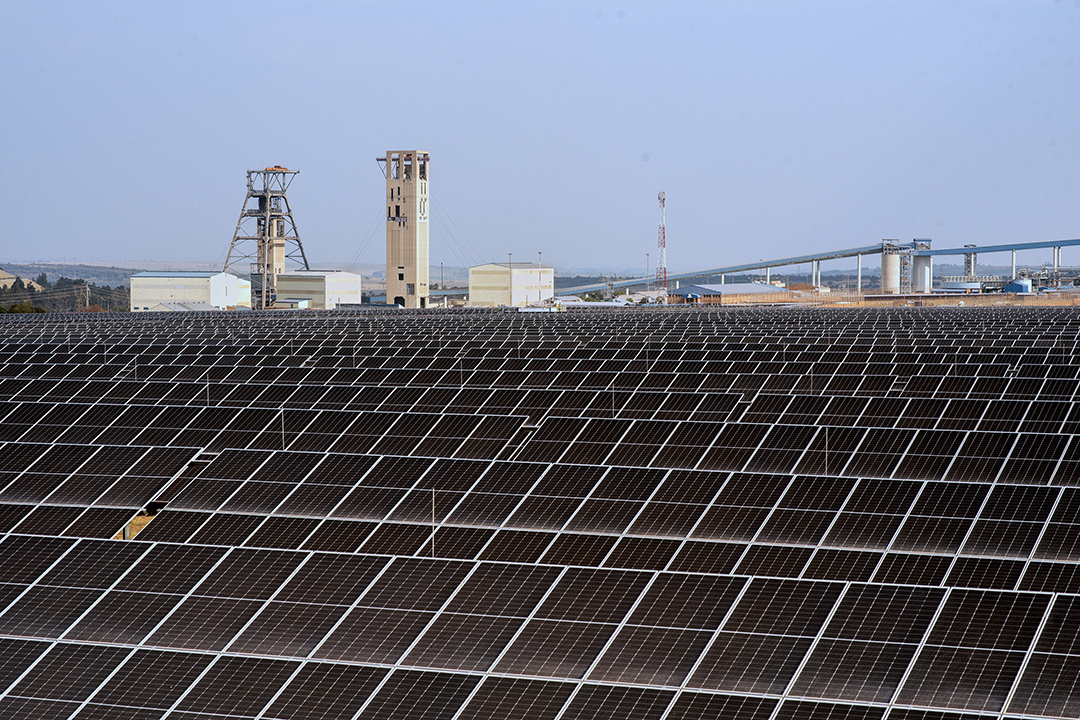The world is awash with talk of net zero, low-carbon growth, and dreams of a circular economy. Renewable energy technology and electric vehicles are at the forefront of such dreams. Desirable and laudable dreams they are too. Realising them, however, will require a more sober-minded assessment of geopolitical realities, the difficult policy choices facing governments, and the conundrum of hunger for critical raw materials alongside fossil fuel exploration expansion.
How should we make sense of these dynamics? What tools can we use to correctly diagnose the situation? What are the implications for African countries? And what should our governments be doing to set us up for success? Some theories from the realm of the political economy of international relations may help to steer us in the right direction. Three theories compete for explanatory and predictive ascendancy.
First, an essentially Marxist view — world systems theory — argues that the world is organised into a core and a periphery. Core countries control the means of production and extract resources from the periphery — its colonies or postcolonial dependents — for the sake of making the core ever richer and more powerful. Neat analytic categories, yes, but overly reductionist. All of history cannot be reduced to a power struggle between oppressors and the oppressed. History is more complicated than that, and states have agency, as do citizens. The extent of citizen agency, of course, depends on the extent of repression exercised by the incumbent regime.
Either way, the Marxist view holds little room for multilateral cooperation. Moreover, it predicts a world that will be no closer to net zero by 2030 than we are now because rich countries will export their pollution to poor countries while extracting resources from those same countries to meet their own targets.

The rise of energy renewables has reduced global interdependence. (The solar field providing electricity for Gold Fields South Africa company mines, in Westonaria, Gauteng.) Photo by LUCA SOLA / AFP
Second, the mercantilist view holds that countries ultimately pursue their own economic interests; this is basically the political economy version of realism or neoliberalism in classic international relations, which conceived of countries as billiard balls — independent, sovereign countries unamenable to global coordination.
It is the most convincing theory as it accounts most adequately for the occurrence and persistence of war. It is also more nuanced than the Marxist view because it understands that states often pursue their own perceived economic interests at the expense of other goals, and that history is complex. It predicts war because it accurately understands that states such as Russia have little interest in playing by the rules of the international order. Of course, states are subject to strategic miscalculation, as is evidently the case with Russia, and Putin will ultimately regret his stupid war against Ukraine.
Nonetheless, mercantilism does not adequately account for internal dynamics within states and how those dynamics influence how those states behave in geopolitics. Two-level game theory does a better job of that, with Robert Putnam having famously argued in 1988 that states most constrained by domestic politics do better in international deal-making.
Think of it like this. Imagine the US president at climate negotiations: “I’m sorry to disappoint you, but my domestic constituency will not accept a US commitment to reduce our emissions by 20% by 2030 as it will damage their economic livelihoods.” Ironically, countries such as Russia and China, which are among the least answerable to their citizenry, end up making mistakes and committing to arrangements that are not in their country’s interests.
Third, a liberalist or “sovereignty at bay” argument assumed that the fall of the Berlin Wall in 1989 would usher in a new “democratic liberal order”, created in the mind of the West after the end of World War 2 in 1945. Capitalism had crushed communism and created economic interdependence among nations. Sovereignty would be less important and the proclivity for war ameliorated by the negative economic repercussions thereof.
If one examines the geopolitics of oil and gas, as Daniel Yergin has done so brilliantly in his latest book, The New Map, pipelines strewn across countries, and new shipping routes appeared to embody the expectations of the “sovereignty at bay” model. Except for a few minor hiccups: China and Russia continue to behave aggressively and violate the sovereignty of other nations; energy markets changed speedily in the wake of the US shale revolution, making the US now essentially energy independent (and the world’s single biggest oil producer); and finally, the rise of renewables has reduced global interdependence.
The rise of post-Mao China from 1977 infatuated many thinkers with the idea that “state-led” capitalism could provide a model for development hitherto considered unworkable. But it was considered unworkable for good reason. As Daron Acemoglu and James Robinson showed in their epic 2012 book Why Nations Fail, China is in for a hard landing. It hasn’t transpired yet, but it’s coming.
The reasoning is simple: the quality of a country’s institutions — the social systems that motivate regular human behaviour — matter for development. Weak institutions — a lack of separation of powers between the executive, the judiciary and the legislature; and no ability for citizens to hold their governments to account — eventually collapse a state. In their 2019 book The Narrow Corridor, the same authors refer to the perils of this dynamic as an “unshackled Leviathan”. What you need for sustained development is citizen power growing at the same rate as state power, which creates the narrow space in which economic dynamism can flourish.
Yasheng Huang argued persuasively in his 2008 book Capitalism with Chinese Characteristics, that China’s rise during the 1980s was a function of “directional liberalism” — a de facto but unwritten respect for private property rights which drove growth and innovation. This ended abruptly with the Tiananmen Square massacre in 1989, the same year that the communist empire of the United Socialist Soviet Republics (USSR) started to collapse. Mikhail Gorbachev essentially disbanded the USSR in 1991. However, the Chinese Communist Party (CCP) remained undaunted and adopted an approach of state-led manufacturing and export-led growth combined with rapid urbanisation. Its re-entry into the World Trade Organisation in 1995 was controversial and remains so, as subsidised goods give the country an unfair trade advantage over its rivals.
At the same time, China exploited African countries which had been struggling for independence and became the site of proxy Cold War battles. For instance, in Angola, China extended the old mode of arms-for-oil deals with Russia but turned them into oil-for-infrastructure deals. They built infrastructure that is unfit for purpose and has done nothing to move Angola out of being an oil-cursed petrostate.
Since Xi Jinping’s appointment as head of the CCP in 2012, China has careened towards an outright dictatorship. Xi has effectively dismantled all power-sharing arrangements within the party, giving him unprecedented powers. The innovation and dynamism of the 1980s are long gone, and the country is starting to commit serious strategic errors on the international playing field. Supporting Russia, engaging in trade wars with the US, and showing increased aggression towards Taiwan are but three examples.
Moreover, the party has been fudging the country’s economic growth figures. Experts are marshalling strong evidence to suggest that growth is at least one percentage point lower than what official figures suggest. Lower true growth means less absorption of labour into the economy, which raises the prospect of social upheaval. The unspoken social contract in China has been political monopoly in exchange for employment-generating economic growth. If the CCP cannot provide the latter, it cannot expect its citizens to continue enduring extensive repression of political freedom. Moreover, as The Economist famously put it, China will grow old before it grows rich, thanks to the repressive “one-child” policy implemented from 1979 to 2016.
One of China’s most glaring, if predictable, mistakes has been to support Russia, though it is careful to use neutral diplomatic language. Talking of Russia, its invasion of Ukraine in February 2022 was unthinkable by disciples of the “sovereignty at bay” argument. But Putin’s resentment at the disbanding of the USSR was real, and he had no category for a Ukraine with a mind of its own.
Other former USSR states like Belarus played the puppet perfectly. Putin thought that he could own Ukraine’s foreign policy through paying rents for the oil and gas pipelines which connected Russia to Europe. But the world had changed. Germany transformed its energy system within a few months to receive US gas instead of Russian gas. And Putin did not bank on Ukraine receiving the sort of support it has from the West. He wanted its territory and its resources.
This gluttonous desire has partly destroyed the foundations of a “liberal world order”, which, of course, is a fiction but a somewhat useful descriptor for what prevailed from 1990 to 2022. The disincentive for war, through economic interdependence, was trumped by the promised riches of old-style mercantilism and grandiose notions of making Russia great again. China appears to have taken the gap, with the world’s attention focused on the Russia-Ukraine war, to step up its aggression in the South China Sea and towards Taiwan specifically, which it sees as its own.
China also originated the COVID-19 virus that decimated the global economy from late 2019 onwards. Supply chains have still not recovered. The energy map that supported global supply chains has also changed irrevocably with the Russian war. This has coincided with a rapid rise in the diffusion of renewable energy technologies and an associated decline in prices of solar and wind power. Where does that leave African countries?
Understandably, African countries with fossil fuel resources want to exploit them, despite a strong global divestment movement. International investors are disinvesting from fossil fuels in the light of climate change realities. The oil price, however, shows no sign of imminent collapse. The Economist Intelligence Unit forecasts that Brent Crude will average $75.6 per barrel through 2025 and drop below $70 per barrel by late 2027.
Oil majors show no sign of slowing down on exploration activity either. A growing African lobby goes by the slogan “drill, baby drill”. They argue that African countries should not be denied the opportunity to electrify and industrialise through their own sovereign energy choices, especially since they are responsible for a minuscule share of global carbon emissions. The problem with that view is that it risks locking those countries into a fossil-laden development trajectory littered with stranded assets.
Africa is also the continent whose population will continue to grow throughout 2021, which will ramp up its emissions. An alternative, therefore, is to step up investments into decentralised renewable energy options, which sidestep the need for large grid infrastructure investments and deliver power at speed and low upfront capital cost. This would allow for much faster rates of electrification and reduce indoor air pollution, a major killer. It would also reduce deforestation. The idea that oil-rich African countries will suddenly start benefiting in a broad-based way from oil and gas rents defies the historical record. Oil wealth remains, empirically, a curse for weakly institutionalised countries.
Scaling up renewables will literally empower local communities to take advantage of economic opportunities from which they are excluded. Resultant broad-based development will help to deal with growing youth unemployment and grow a middle class, which typically strengthens political order through citizens’ demands for reform.
Even in the midst of mercantilism re-emerging as the most adequate theory for explaining nation-state behaviour post-2020, and even with the growth of populism and democratic backsliding, renewable energy technologies carry the potential to change this landscape. Take, as a final example, the demand for critical raw materials to feed renewable energy technology.
On the one hand, it could lead to a core-periphery exchange of raw materials for final products. On the other, it could provide an opportunity for African countries to negotiate on new terms. Zambia, for instance, possesses copper, cobalt and lithium. Battery minerals such as lithium could be extracted in exchange for a place in the global battery value chain, provided this is bolstered by sensible industrial policies.
Many of the technologies involved in processing these new critical minerals are not energy-intensive, which again raises the prospect of being able to accomplish it with small-scale renewables. While mining will not be a major direct employer again, it creates upstream and side-stream opportunities that may yet enable African countries to prosper in the way we so eagerly desire.
Having said all of this, democratic backsliding remains a serious concern across African countries and indeed across the world. The Economist Intelligence Unit’s Democracy Index of 2022 classifies 59 of the world’s countries as authoritarian, whereas 24 are “full democracies”. Geographically, authoritarian or “hybrid regimes” are predominantly located across Africa, and the Middle East, along with Russia and China.
Africa alone has suffered eight coups in three years, with Gabon in Central Africa the latest casualty of the contagion effect. Most of the new entrants (Saudi Arabia, Iran, Egypt, Ethiopia, United Arab Emirates, and Argentina) to the BRICS grouping (Brazil, China, India and SA) are also high on repression and low on freedom.
A final geopolitical concern is the result of technological advances such as artificial intelligence (AI). Massive rents accrue to owners of new technologies (think Microsoft, ChatGPT, Apple, Google, and so forth), while the resultant economic losses are concentrated. New tech has produced jobless economic growth and little broad-based global benefit despite great potential. The export of jobs to countries which have offered cheaper labour and higher efficiencies may have generated more benefit for shareholders, but job losses in the US, for instance, paved the way for political grievances that precipitated a Trump victory. Other populists have taken note.
Economic gains for the few at the expense of the majority create political problems that may end up destroying the opportunity to create narrow corridors. The worker in Johannesburg who loses his job to AI or another labourer in China doesn’t care about the purported benefits of tech; they just become more likely to vote for demagogue populists such as Julius Malema.
Without viable economic engines and associated governance vehicles to drive broad-based development, mercantilism will gain ascendancy over “sovereignty at bay”. The world will be the worse for it. Citizens need to understand these dynamics and take steps to fight for good governance and civil liberties.
- This article originally appeared in Business Day’s BIG READ.
Dr Ross Harvey is a natural resource economist and policy analyst, and he has been dealing with governance issues in various forms across this sector since 2007. He has a PhD in economics from the University of Cape Town, and his thesis research focused on the political economy of oil and institutional development in Angola and Nigeria. While completing his PhD, Ross worked as a senior researcher on extractive industries and wildlife governance at the South African Institute of International Affairs (SAIIA), and in May 2019 became an independent conservation consultant. Ross’s task at GGA is to establish a non-renewable natural resources project (extractive industries) to ensure that the industry becomes genuinely sustainable and contributes to Africa achieving the Sustainable Development Goals (SDGs). Ross was appointed Director of Research and Programmes at GGA in May 2020.













